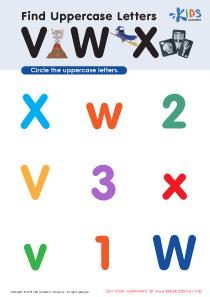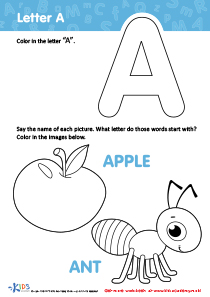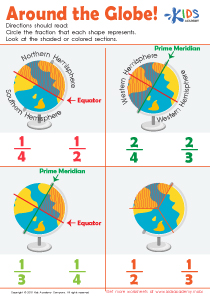Hard Vocabulary Quizzes for Ages 7-8
4 results
4 filtered results
Clear all filters4 filtered results
-
From - To
Introducing the Extra Challenge Vocabulary Quizzes, perfectly tailored for children ages 7-8! Dive into an enriching environment where young learners can expand their vocabulary horizons. Our interactive assessment quizzes are designed to test knowledge while providing immediate, constructive feedback, ensuring an engaging and educational experience. With a diverse range of topics and difficulty levels, each quiz aims to enhance your child's language skills, encouraging curiosity and a love for learning. Ideal for both classroom enrichment and at-home practice, the Extra Challenge Vocabulary for Ages 7-8 is your go-to tool for fostering a strong vocabulary foundation. Join us and watch your child's language abilities soar!
In the foundational years of education, developing a strong vocabulary is crucial for children. It not only enhances their ability to communicate effectively but also significantly boosts their reading comprehension, writing skills, and overall academic performance. Recognizing the importance of this developmental stage, our Extra Challenge Vocabulary for Ages 7-8 has been meticulously designed to cater to the needs of young learners, providing them with an engaging, interactive, and efficient way to expand their vocabulary.
The Extra Challenge Vocabulary quizzes for Ages 7-8 are more than just a learning tool; they are a gateway to a world of words, encouraging children to explore and understand the richness of the English language. These assessment quizzes are specifically tailored to the cognitive and developmental needs of children aged 7 to 8, ensuring that the material is not only age-appropriate but also challenging enough to stimulate their intellectual curiosity.
Here are several ways in which our Extra Challenge Vocabulary quizzes can be beneficial to children in their studies:
-
Enhanced Reading Comprehension: A robust vocabulary is a key to unlocking the full meaning of texts. By engaging with our vocabulary quizzes, children are introduced to new words in various contexts, improving their ability to understand and interpret what they read. This heightened comprehension aids in other subjects as well, where reading is fundamental to learning.
-
Improved Writing Skills: As children’s vocabularies expand, so does their ability to express themselves in writing. With a richer word bank to draw from, they can convey their thoughts and ideas more precisely and creatively. The Extra Challenge Vocabulary for Ages 7-8 encourages this growth by not only teaching new words but also demonstrating their use in sentences.
-
Engaging Learning Experience: Our interactive quizzes are designed to be fun and engaging. Through a combination of visual aids, audio clips, and interactive challenges, children are more likely to stay engaged and motivated to learn. This positive learning experience helps instill a love for language that can last a lifetime.
-
Building Confidence: With each quiz completed, children receive immediate feedback, allowing them to recognize their achievements and areas for improvement. This ongoing assessment helps build their confidence in their language abilities, encouraging them to participate more actively in class discussions and other academic activities.
-
Preparation for Future Academic Success: A strong vocabulary foundation set in the early years of education is crucial for later academic success. The skills developed through the Extra Challenge Vocabulary for Ages 7-8 quizzes not only prepare children for the challenges of higher-grade language arts but also for standardized tests that play a significant role in their educational journey.
Incorporating the Extra Challenge Vocabulary for Ages 7-8 into children’s study routines offers them a unique opportunity to grow their vocabulary in a structured, engaging, and effective manner. By prioritizing vocabulary development at a young age, we can provide our children with the tools they need to succeed academically and express themselves with confidence and clarity throughout their lives.










